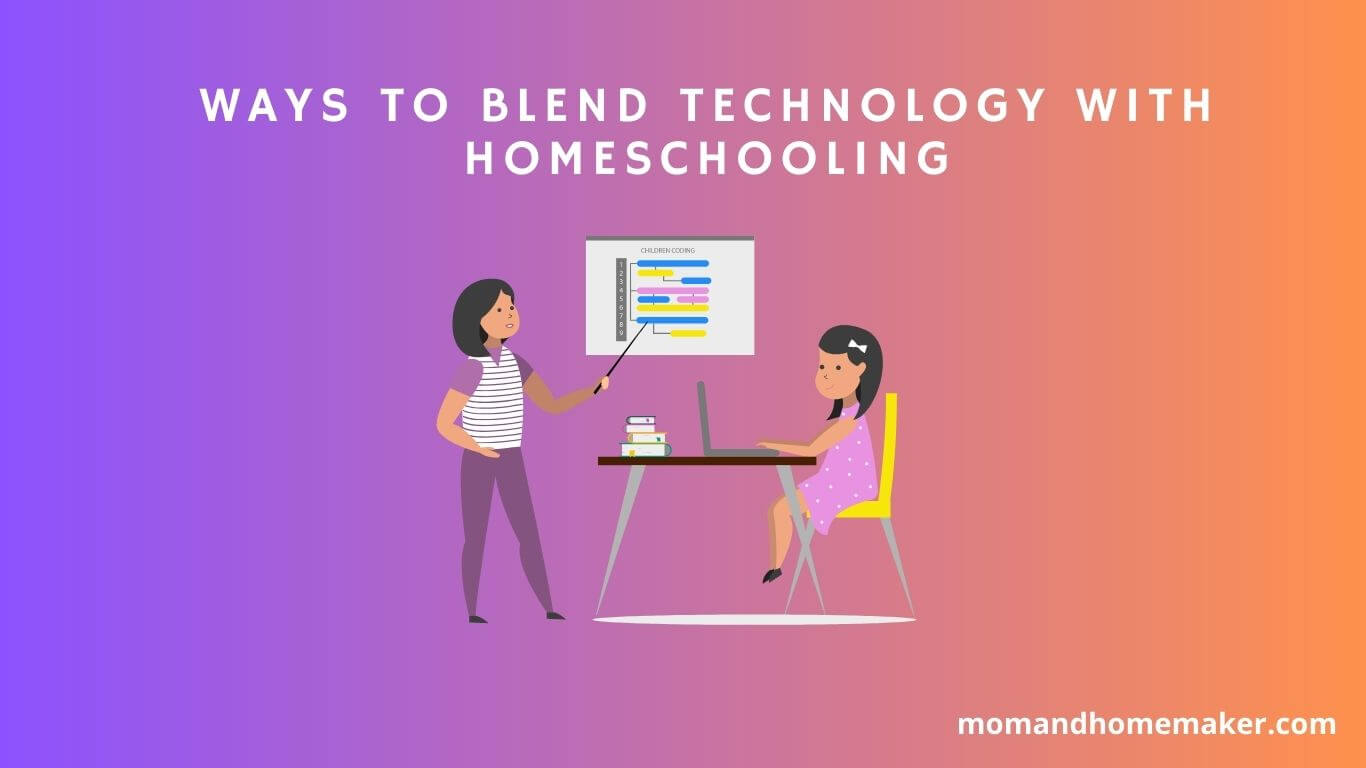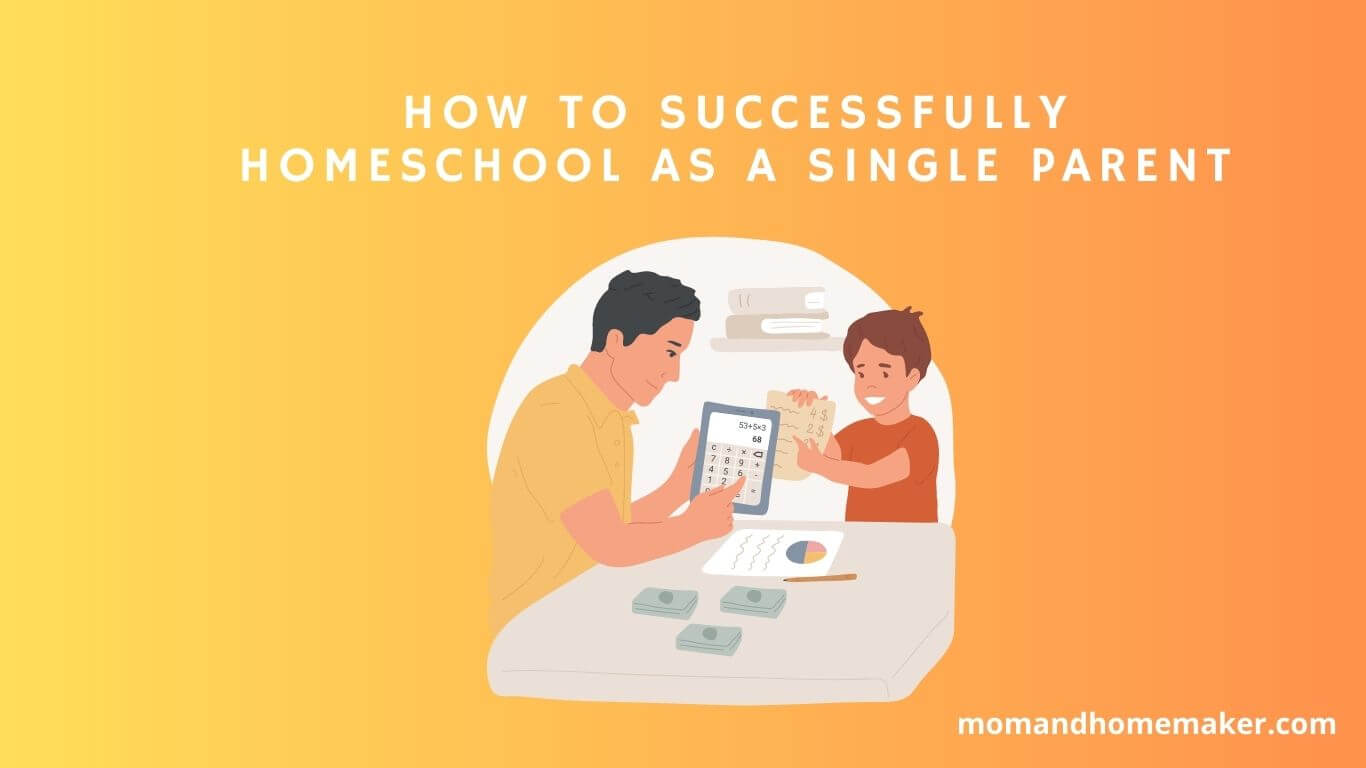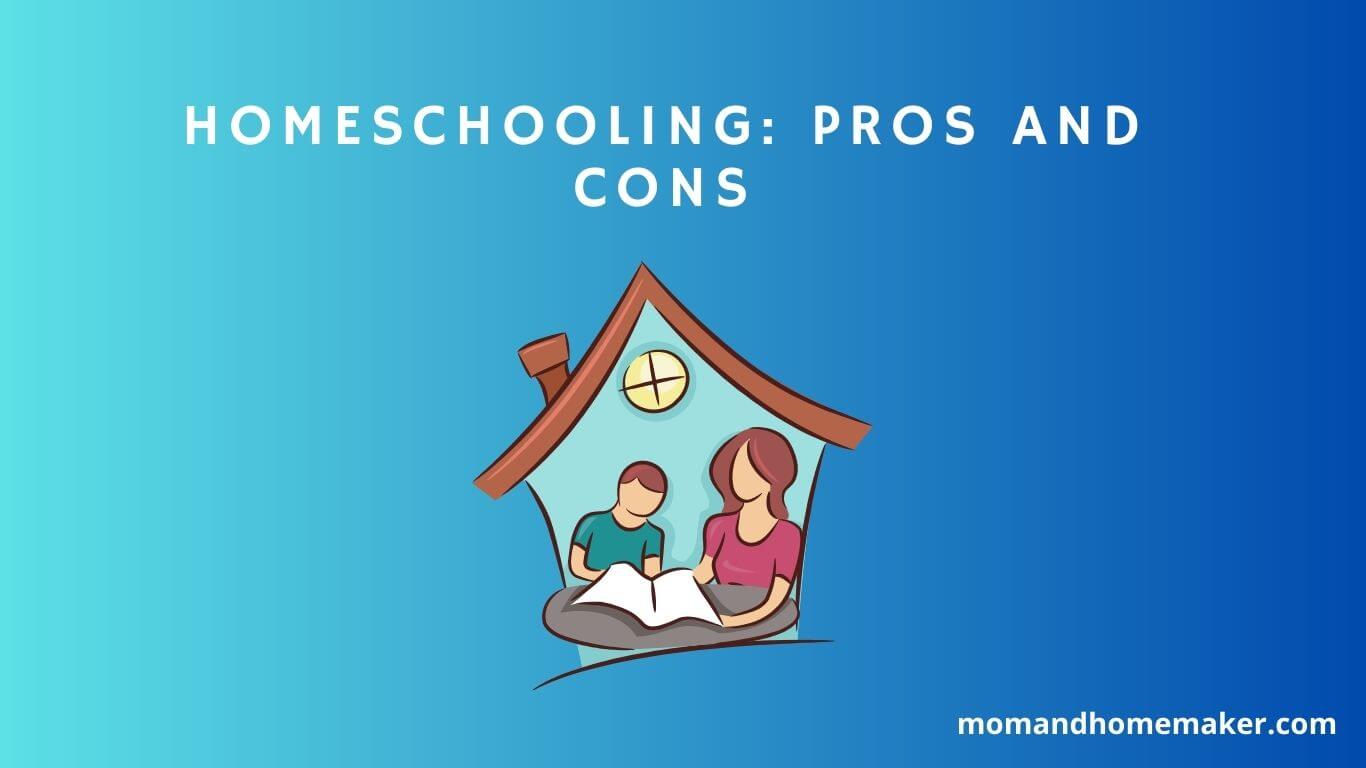Homeschooling has become increasingly popular in recent years, especially for families with special needs children. While it may not be the best option for everyone, homeschooling has proven to be an incredibly effective and rewarding approach for many families.
We will explore 19 advantages of homeschooling children with special needs. Whether you’re considering homeschooling as an alternative to public or private school or simply want to learn more about the benefits of this unique approach, read on to discover why homeschooling may be the perfect fit for your family.
1. Personalized Learning Pace
One major advantage of homeschooling special needs children is the personalized learning pace. Unlike traditional classrooms, homeschooling allows students to work at their own ideal pace. This means that special needs students do not have to struggle to keep up with their peers and can instead take extra time to review challenging concepts.
They can as well work ahead in areas where they excel. Homeschooling parents can modify their yearly calendar to meet their child’s specific needs, allowing them to take as little or as long as they need to finish a grade level. This individualized approach to education can ensure that special needs students receive the attention and care they need to achieve academic success.
Overall, a personalized learning pace is a valuable benefit of homeschooling children with special needs.
2. Modified Yearly Calendar
Another advantage of homeschooling a child with special needs is the ability to modify the yearly school calendar. Homeschool students do not need to keep up with the pace of other students in a traditional classroom, and can take as little or as much time as needed to learn a concept.
This is especially helpful for students with learning delays or behavior challenges, as they can have extra time to review concepts or take breaks when needed. The flexibility of the homeschool schedule also allows students to work ahead in areas where they excel.
Homeschooling parents can customize the learning environment to better suit their child and can adjust the schedule accordingly to accommodate their child’s needs. By modifying the yearly calendar, homeschooling families can help their special needs child achieve academic success.
3. One-to-One Instruction
Apart from the above, homeschooling children with special needs provides one-to-one instruction. In a traditional classroom setting, teachers have to manage a group of students with varying needs and abilities. This can often lead to students with special needs not receiving the attention and support they require to succeed academically. In a home environment, parents can focus solely on their child and tailor their instruction to match their child’s learning style and pace.
This individualized approach allows for the child to receive more attention and support, which can lead to greater academic success. This approach can also lead to a stronger relationship between the parent and child, as they work together to overcome challenges and achieve academic goals.
4. Minimal Distractions
When it comes to homeschooling children with special needs, minimizing distractions in the learning environment can be crucial. In a traditional classroom, distractions can be overwhelming for children with attention disorders or sensory issues. However, homeschooling provides the ability to create a classroom space that is tailored to each child’s individual needs.
With a calm and comfortable learning environment, children are more likely to be able to focus on their studies and make academic progress. Parents can also adjust lighting, temperature, and seating arrangements to support their child’s learning style. This personalized approach to minimizing distractions can help children with special needs achieve their full potential and develop a positive attitude toward learning.
5. Flexible Breaks
Flexible Breaks are one of the advantages of homeschooling children with special needs. Homeschooling offers the opportunity for parents to provide a customized learning plan that caters to their child’s needs, including the flexibility to take breaks when needed. This is particularly important for children with learning disabilities or ADHD, who may need to move around or take frequent breaks to maintain focus.
Breaks can also be helpful for children with physical disabilities who need to stretch or rest. By allowing flexible breaks, parents can help their children refresh and recharge, improving their overall learning experience. This flexibility also reduces stress and anxiety for both the child and parent, as they are not bound by rigid schedules and can adapt to changing needs as necessary.
In short, flexible breaks can improve the education and well-being of children with special needs who require extra support and attention.
6. Alternative Learning Strategies
When homeschooling a child with special needs, parents have the flexibility to use alternative learning strategies that may not be available in a traditional classroom setting. This is because parents know their children best and can create personalized lesson plans that cater to their strengths and learning style. For example, if a child struggles with reading, the parent can incorporate auditory and visual learning methods to help them understand the material better.
Parents can use hands-on learning techniques and incorporate physical activity into their lessons, which can be beneficial for students who require movement to learn. By utilizing alternative learning strategies, parents can help their children with special needs reach their full potential and succeed academically.
7. Unlimited Testing Time
Parents of special needs students often worry about their child being able to keep up with typical students in a classroom setting. One advantage of homeschooling is that special needs students have unlimited testing time. This allows them to take as much time as they need to complete a test, without feeling pressured by time constraints.
For some students, this makes all the difference in the world, as they may need breaks or have difficulty with certain tasks. With unlimited testing time, special needs students can take the time they need to fully understand and complete a test, which will likely lead to better quality work. This can help boost their self-esteem and confidence, as they feel less pressure to keep up with their peers.
Ultimately, homeschooling allows for a more customized and accommodating environment for students with special needs, which is beneficial for their academic success and overall well-being.
8. Special Accommodations
When it comes to homeschooling children with special needs, adapting the curriculum and environment to meet the child’s individual needs is key. One of the primary advantages of homeschooling is the ability to make special accommodations for your child’s unique learning style.
This may include providing alternative learning materials or tools, such as a keyboard for a student with dysgraphia, or using fidgets to help a child with attention issues stay focused. As a homeschool parent, you can tailor each lesson to your child’s specific learning needs and provide additional time or accommodations as necessary.
This flexibility can significantly improve your child’s academic success and overall confidence in their abilities. It’s important to continually assess and adjust the accommodations to ensure your child is receiving the support they need to thrive in their learning environment.
9. Improved Socialization Opportunities
One of the common misconceptions about homeschooling children with special needs is that they will miss out on socialization opportunities. However, homeschooling actually offers unique opportunities for socialization. Homeschooled children with special needs can interact with people of different ages, backgrounds, and abilities, which can be beneficial for their social and emotional development. Homeschooling also allows parents to customize social opportunities based on their child’s needs and interests.
For example, they can schedule playdates with other children who have similar interests and needs or they can participate in social activities with homeschooling groups. Homeschooling allows children to learn social skills in a safe and supportive environment, as parents can provide guidance and support as their child navigates social situations. Homeschooling offers many benefits for socialization and can provide a positive social experience for children with special needs.
10. Easy Access to Doctors and Therapists
Parents who homeschool their special needs children have an easier time accessing medical resources. In traditional school settings, a lot of extra time and paperwork is needed to get the necessary treatment. However, when the parents teach at home, managing the appointments and therapy sessions becomes simpler.
Also, homeschooling offers a great advantage when it comes to structuring children’s academic and therapeutic schedules. It enables parents to ‘budget’ time and works around their child’s therapy sessions, appointments, and other medical requirements. This means that children get a better chance to concentrate, receive treatment and special attention while receiving education simultaneously.
Parents can also work closely with therapists to perfect and reinforce their children’s treatment plans and educational goals. This collaboration between educators and physicians ensures that children receive a seamless, consistent treatment experience, which ultimately leads to better progress.
Thus, homeschooling provides an easy way to access healthcare resources, promoting better academic, and physical development in children with special needs.
11. Focus on Strengths
One of the advantages of homeschooling children with special needs is the ability to focus on their strengths. Homeschooling allows parents to tailor their child’s education to their unique strengths and interests, rather than a one-size-fits-all approach in traditional schools. This individualized approach can lead to greater learning success and increased confidence in a child’s abilities.
In the homeschool setting, children can spend more time exploring and developing their areas of strength, leading to a greater sense of accomplishment. Homeschool parents can work with their children to identify learning strategies that work best for them, such as hands-on activities and alternative learning approaches.
Homeschooling special needs children allows parents to create an environment that fosters their child’s strengths and helps them reach their full potential.
12. Boosted Confidence
Homeschooling a child with special needs can boost their confidence in many ways. In a traditional educational program, the focus is usually on what a child can’t do, and their weaknesses are constantly pointed out. By homeschooling, the focus shifts to what a child can do, and this can lead to a boost in self-esteem.
Homeschooling also creates an environment where children can work at their own pace, without the pressure of keeping up with their peers. This can help them feel more confident in their abilities. Additionally, the customized curriculum allows parents to focus on a child’s strengths and interests, which can make learning more engaging and motivating.
Overall, homeschooling can give children with special needs the confidence they need to succeed in life.
13. Natural Learning Approaches
Homeschooling a child with special needs allows the parent to implement natural learning approaches that suit the child’s needs. These approaches could include hands-on learning, multi-sensory activities, and outdoor exploration. Unlike traditional schooling, where standardized curriculum and teaching methods are prioritized, homeschooling gives parents the freedom to create and use unique and adaptable learning techniques that cater to their children’s individual needs.
By incorporating natural learning approaches, children with special needs are more likely to retain and apply new information as it is presented to them in a way that is easier for them to understand. Natural learning approaches also help in developing the child’s problem-solving and critical thinking skills, which is beneficial for their overall academic performance.
Through homeschooling, parents of special needs children can devote the time and resources necessary to implement these natural learning approaches and achieve greater success in their children’s education.
14. Reduced Bullying
Homeschooling children with special needs comes with many advantages, one of which is reduced bullying. In traditional school settings, children with disabilities or special needs are often the targets of bullying. This can lead to a host of negative outcomes, including decreased self-esteem and academic performance.
By homeschooling, children with special needs are able to avoid the harmful effects of bullying and instead learn in a safe and supportive environment. Homeschooling parents are also able to closely monitor their child’s interactions and provide guidance and support as needed. This allows for a more positive and stress-free learning experience for both the child and parent.
Homeschooling allows for a more personalized approach to education, which can better accommodate the unique needs of each individual child. Overall, reduced bullying is just one of the many benefits of homeschooling children with special needs.
15. Supportive Home Environment
A supportive home environment is one of the biggest advantages of homeschooling children with special needs. In the home environment, parents have the ability to create a comfortable and accommodating space that is ideal for their child. This can help reduce stress and provide a sense of security for children who may struggle in traditional academic settings.
Parents can also provide emotional support and understanding that may not always be available in a classroom. By being able to work one-on-one with their child, parents are better able to identify and address their child’s needs, allowing them to provide tailored support to maximize their academic and personal growth. A supportive home environment can help children with special needs feel more confident and empowered, enabling them to achieve academic success.
16. Customized Curriculum
One major advantage of homeschooling children with special needs is the ability to create a customized curriculum that meets the unique needs and learning styles of each child. Unlike in the traditional classroom setting, homeschooling allows parents to tailor the educational materials to fit their child’s specific strengths, weaknesses, and interests.
This personalized approach can maximize a child’s potential for academic success and increase their engagement and motivation to learn. Homeschooling allows parents to modify the pace and difficulty level of the curriculum, providing extra time and attention for areas that require more support and allowing children to advance more quickly in subjects where they excel.
In this way, homeschooling can provide children with special needs with a highly individualized education that addresses their specific learning challenges and encourages them to reach their full potential.
17. Higher Academic Achievement
According to Calvert, homeschooling special needs students can lead to higher academic achievement. In a traditional classroom setting, students are expected to keep up with their peers and may not have the extra time or attention needed to fully understand concepts. However, homeschooling allows for a personalized education that caters to the individual needs of each student.
Special needs students can work at their own pace, take breaks as needed, and use alternative learning approaches that work best for them. Homeschooling also provides opportunities to modify yearly calendars, offer one-to-one instruction, and allow for special accommodations that can help students learn and succeed.
With this level of personalized attention and support, homeschooling special needs students can lead to higher academic achievement and a greater sense of accomplishment for both students and parents.
18. Safe and Comfortable Learning Space
One advantage of homeschooling children with special needs is the ability to create a safe and comfortable learning space tailored specifically to the child’s individual needs. In a traditional classroom, there may be distractions, such as loud noises or overwhelming visual stimuli, that can hinder a child’s concentration and ability to learn. By homeschooling, parents can design the learning environment to meet the child’s specific needs and preferences.
For example, if a child has sensory issues, the parent can modify the space by dimming the lighting or using soft rugs and comfortable seating to help the child feel at ease. Creating a welcoming and safe learning environment can go a long way in enhancing a child’s ability to learn and succeed.
19. Enhanced Parent-Child Relationship
Homeschooling provides an opportunity for parents to develop a closer bond with their children, especially those with special needs. When parents are actively involved in their child’s education, they are more aware of their child’s learning style, their strengths, and weaknesses. This creates a deeper understanding between parent and child, which can lead to improved communication and a stronger relationship.
Homeschooling provides the flexibility for parents to tailor lessons to their child’s specific needs, making the learning experience more personalized. This not only fosters a positive learning environment but also strengthens the parent-child relationship as children feel supported and understood by their parents.
Ultimately, the enhanced parent-child relationship that comes with homeschooling can have a significant impact on a child’s academic success and overall well-being.
Conclusion
In conclusion, homeschooling children with special needs has numerous advantages. Homeschooling provides a tailored curriculum that meets the unique needs of each child, fosters a supportive and flexible learning environment, promotes independence and self-esteem, and allows for individualized attention from parents. Homeschooling eliminates the negative stigma associated with special needs education while providing ample opportunities for socialization within safe and controlled settings.
By homeschooling their children with special needs, parents are better equipped to address their children’s unique challenges while providing them with the tools they need to succeed in life. If you’re considering homeschooling your special needs child, it may be the best decision you make for your family’s future.













